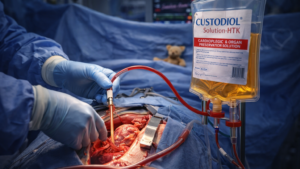Introduction: Heparin is the primary anticoagulant for cardiopulmonary bypass (CPB) support during cardiac surgery. While widely used, ∼2% of cardiac surgery patients develop heparin-induced thrombocytopenia (HIT) and 4-26% develop heparin resistance. Bivalirudin is an alternative anticoagulant mainly used for percutaneous coronary interventions. Given the challenges associated with heparin anticoagulation, we conducted a review to explore the use of bivalirudin for CPB surgery.
Methods: PubMed and Embase scoping review included 2 randomized controlled trials, a retrospective comparison study, 3 pilot studies, and 30 case reports. To provide a contemporary series, we searched for articles published from 2010 to 2023. Our review included studies from both adult and pediatric populations.
Results: While data is limited, bivalirudin seems to supply similar effectiveness and safety as heparin for CPB anticoagulation. Across the three comparative studies, the heparin cohorts had a 0-9% mortality rate and 0-27% rate of major bleeding/reoperation compared to a 0-3% mortality and 0-6% major bleeding/reoperation rate for the bivalirudin cohorts. Bivalirudin was successfully used as an anticoagulant in a wide range of CPB surgeries (e.g., heart transplants, ventricular assisted device placements, and valve repairs). Successful patient outcomes were reported with bivalirudin infusion of ∼2 mg/kg/hour, activated clotting time monitoring (target >400 s or 2.5× baseline), use of cardiotomy suctions, minimization of stagnant blood, and post-bypass modified ultrafiltration.
Conclusion: Bivalirudin is a safe and effective anticoagulant for CPB, especially for patients with HIT or heparin resistance. Further comparative research is called for to optimize bivalirudin utilization for CPB during cardiac surgery.
Keywords: anticoagulation; bivalirudin; cardiac surgery; cardiopulmonary bypass; heparin.







